January 17, 2021 - Taking a Balkan road trip during the pandemic with limited information can be a challenge. A recent border crossing experience from Croatia to Albania, via Bosnia and Hercegovina, Montenegro, and back.
"Do you have your PCR test for Montenegro?" asked the Croatian border guard, while scanning my passport.
"No, because they are no longer required."
"Yes they are."
"My information is that they are no longer required since yesterday."
The official picked up the phone, asked someone on the Montenegrin side, then confirmed that yes, in fact, I was right. Test no longer required.
"Good to know," he said, before handing me my passport and wishing me a good trip.
Good to know indeed, I thought to myself. But if the border guards are not up to date with the latest situation, what chance for travellers? There has been such confusion about travel regulations with the lack of clear official information for months now, and the number of people seeking advice on the Total Croatia Travel INFO Viber community is a testament to that.
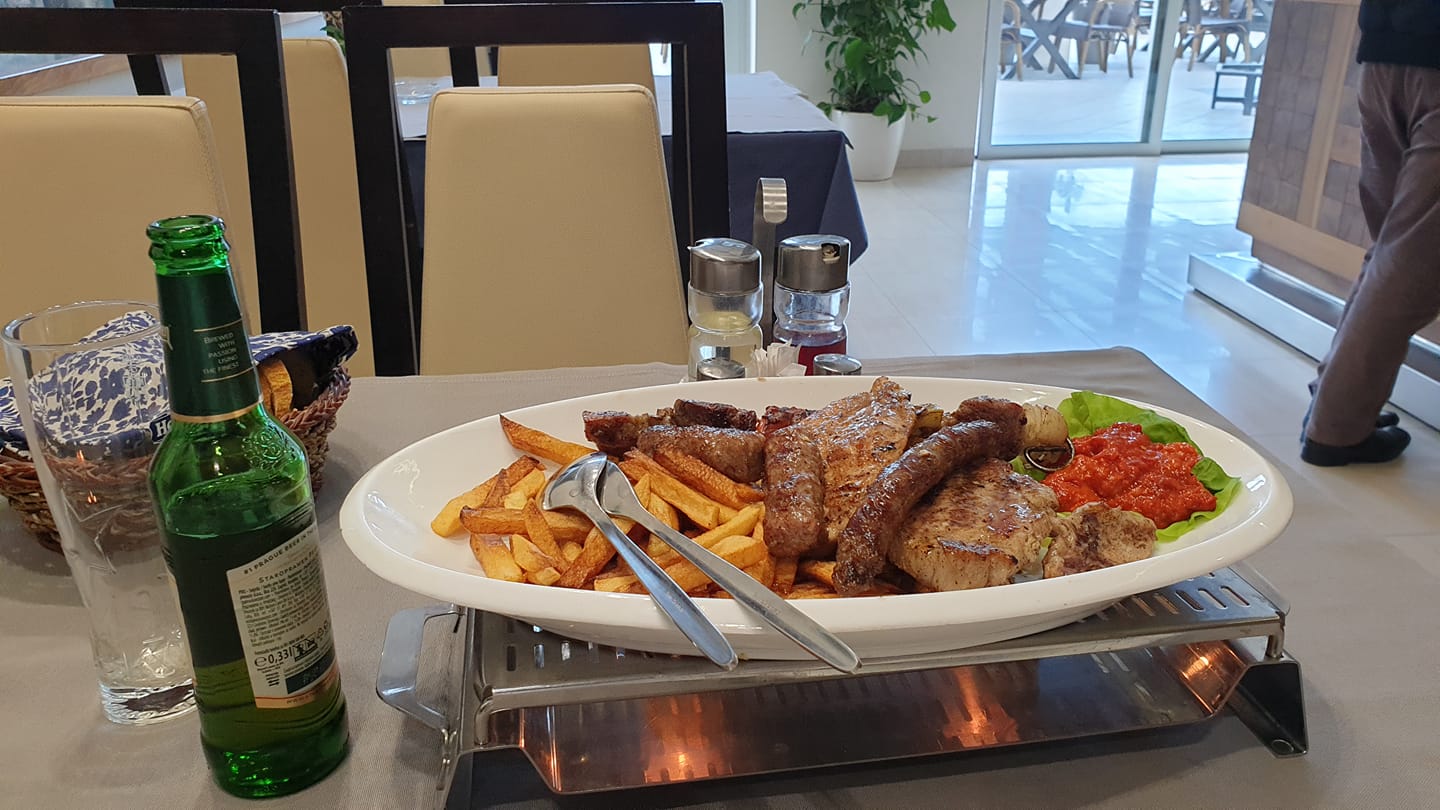
Having been mostly stuck on my sofa working online for the last couple of months, especially after living in a country whose cafes and restaurants have been shut for weeks, the prospect of a 12-hour drive from Varazdin to Tirana filled me with a little trepidation. Among the key worries was how easy it would be to cross the border, and whether or not the information I had found online had been correct. And if I did need a PCR test, where could I get one quickly in Dubrovnik?
As I sailed down the motorway, thoughts turned to food. Having become accustomed to living in a world without restaurants and bars, the charms of the motorway service station was my only option, but then I wondered if I had correctly remembered something about restaurants being open in Bosnia? I asked some friends what they could find. One replied that they were open only in the ski resorts, another that they were open everywhere. Again, finding concrete information in the Information Age...
Driving through the Neum Corridor which separates the two parts of Croatia until the Peljesac Bridge is finished, nothing more than a passport check and several questions about my destination. As I drove through Neum, I was wondering if my usual stopping point would be open and serving food. I was convinced it would not be, having been accustomed to a world without cafes and restaurants.
It was!
Even though it was far from the finest meal of my life, sitting in a restaurant with a mixed grill and a cold beer was one of the most exhilarating experiences in recent memory. The Old Normal.
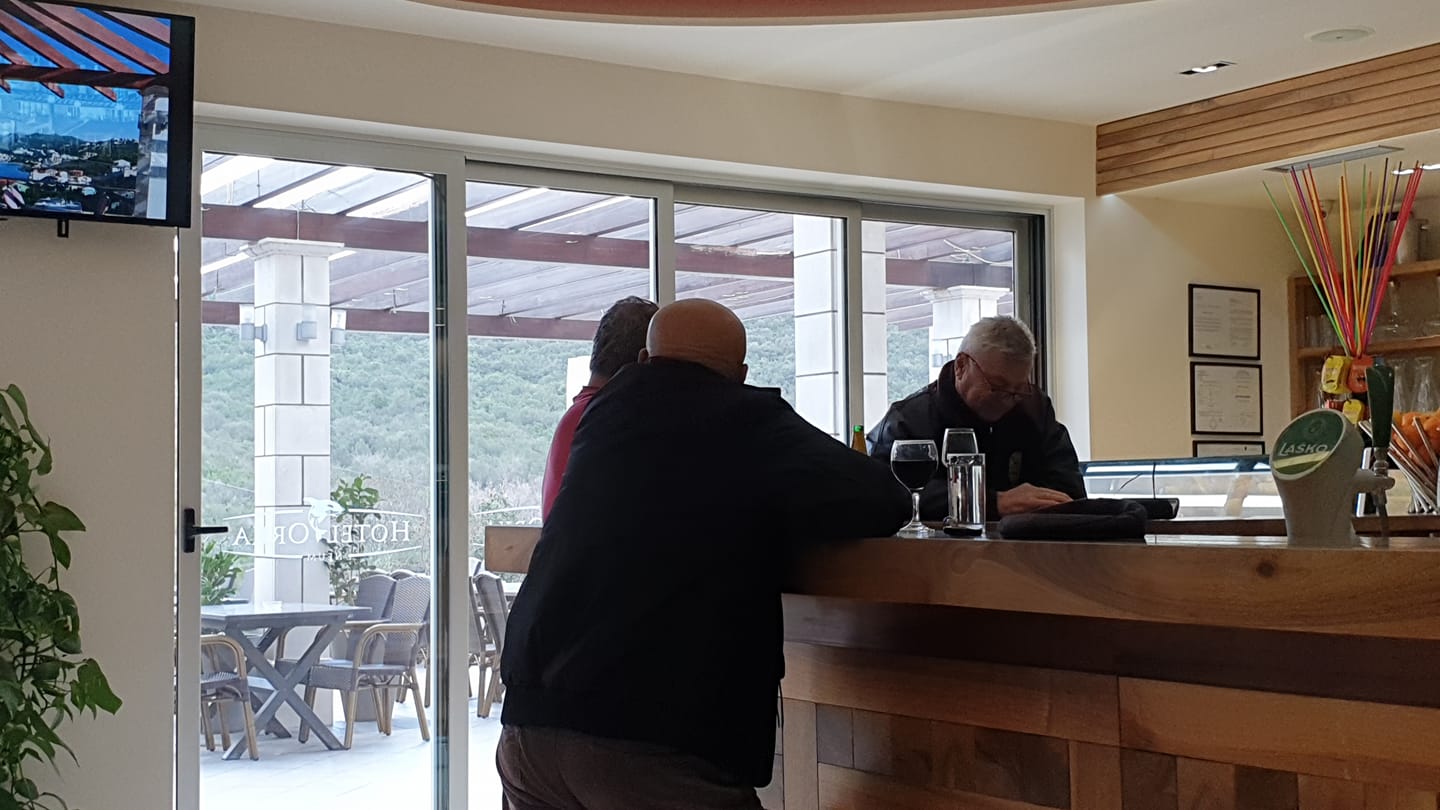
And I was only seconds into my old comfort zone before I encountered yet one more blast from the past - Balkan cafe philosophy. It has been a while since I had been privy to the pearls of wisdom that emanate daily from the cafes of the region, and it was good to have back in my life (I think...).
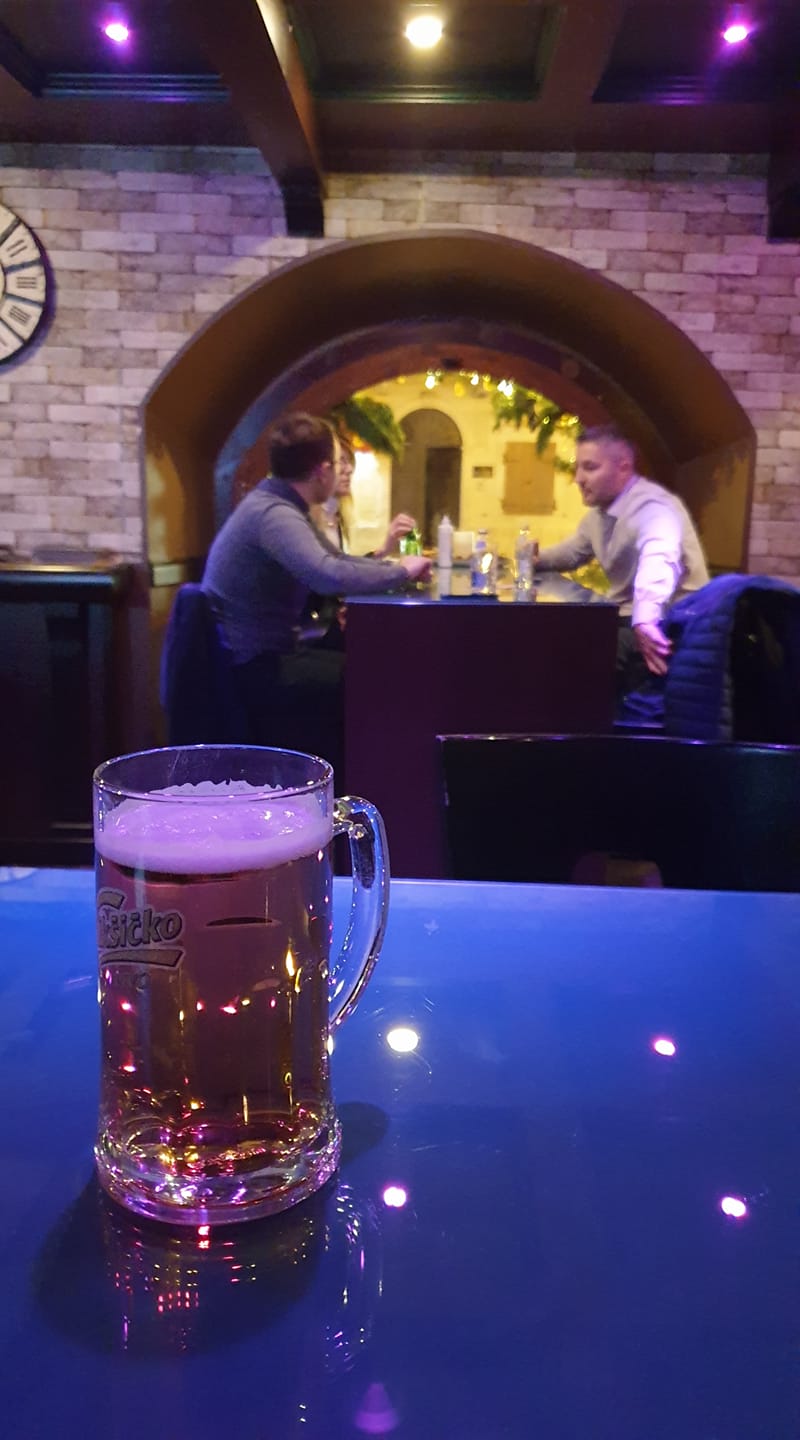
On to Montenegro and a first meeting, where my initial information was that only hotels could be open and serve, but then a secondary source said that all bars and restaurants could now work until 22:00, after which there was a nationwide curfew.
Once the border guard on the Croatian side was up to speed with the new rules, it was straight to Kotor old town and a meeting in a pub - just like life used to be. I can't tell you how nice it was to be back to how things used to be, or how people were observing distance in a way I don't see as much in Croatia. The evening curfew, which is also in effect in Bosnia and Albania, gets people back to their homes at night, so less house parties, while allowing businesses to operate, and for people to meet. From a psychological point of view, after weeks of closed bars and restaurants, it felt revolutionary. I am no expert in these things, but closed cafes and no curfew v open cafes and an evening curfew seems to have only one logical winner.
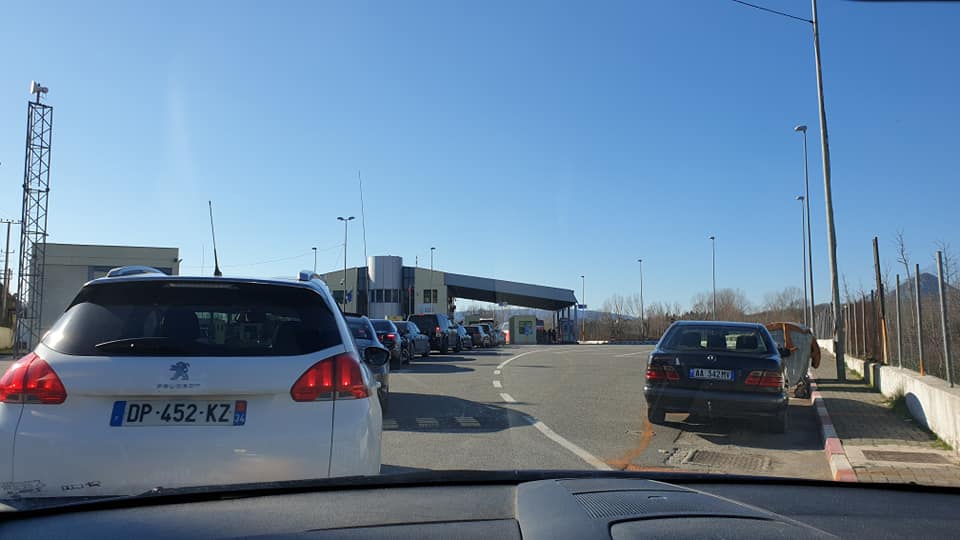
On to Albania. A 30-minute wait at the border, but a vehicle and passport check only.
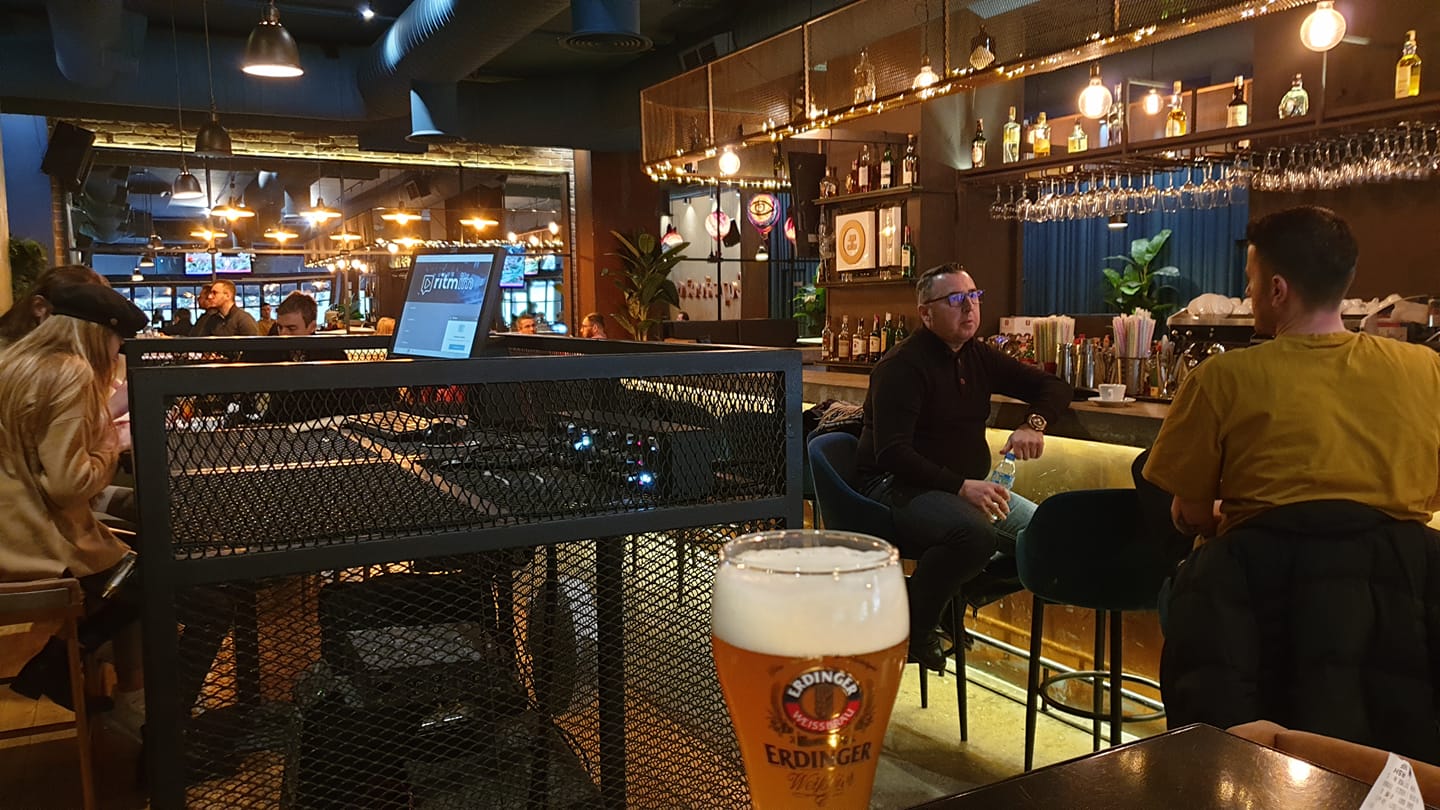
I spent the biggest part of my trip in Albania, and the longer I stayed, the more comfortable I was about a return to the old normal. More people wore masks in the streets than in the other countries, and the rules were more rigidly adhered to inside buildings. And it is interesting to note that Albanian corona deaths per capita are considerably less (more than 50% less) than their Balkan neighbours.
There is another aspect to this, especially in periods of prolonged lockdown - the psychological effects. Just having the option to go somewhere, even with restricted opening hours, makes a big difference mentally, as well, of course, as the economic effect for cafe and restaurant owners. It will be interesting to see what route Croatia chooses with the expected new measures on February 1.
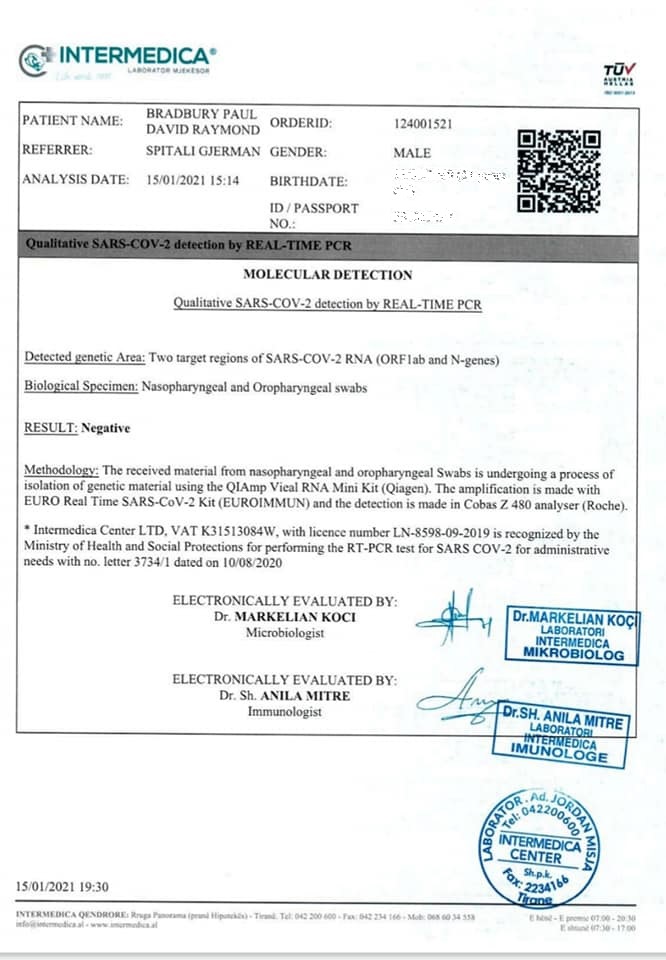
Yet more border rule changes from Croatia as I was out of the country, mostly affecting travellers from the UK. I knew that I needed a negative PCR test no older than 48 hours for re-entry, and finding a place that could deliver this in Tirana was the first thing I needed to sort on arrival. The German Hospital was the place to go. And for just 71 euro, I had the pleasure of a swab up both nostrils and the back of the throat, with the negative results sent by email and WhatApp less than three hours later. Very efficient.
The most challenging border on my return would be entering Croatia and showing the PCR test, but that was also very efficient. I showed the email from the hospital and was given a piece of paper with instructions and an email address to forward the test (the Croatian border police). And once it was sent, I was on my way.
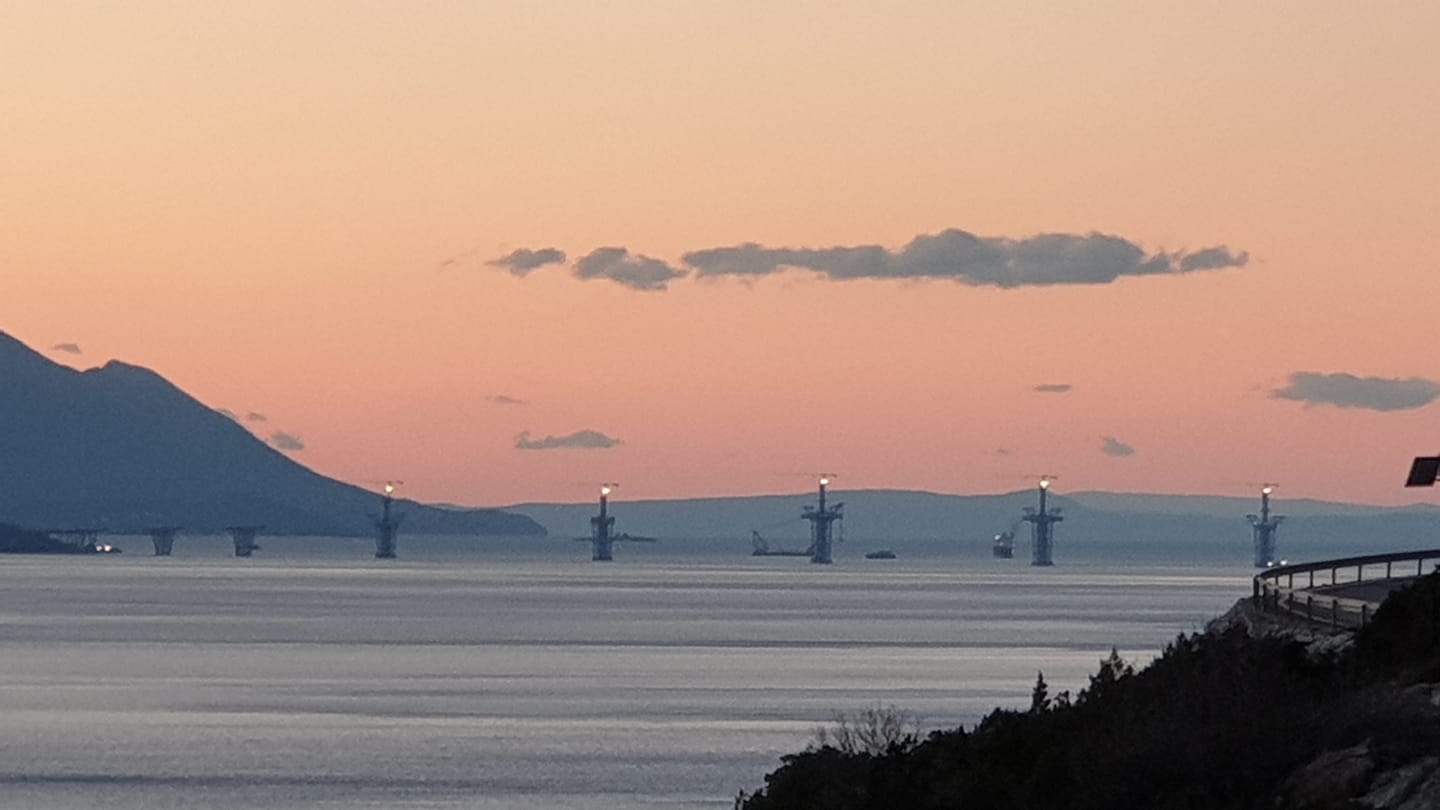
Next destination, the island of Hvar and ferry to Sucuraj, but where to stop for a late lunch on the way? With everything closed in Croatia, the only option was Neum once more, which provided me enough sustenance for the final leg of the journey.
But the view from Neum shows how this region is changing, and the Neum Corridor will be much less busy when the Peljesac Bridge finally opens (in, from memory, 2022).
Let's hope Croatia will have opened its bars and restaurants by then.
For the latest travel info, bookmark our main travel info article, which is updated daily.
Read the Croatian Travel Update in your language - now available in 24 languages.
Join the Total Croatia Travel INFO Viber community.


